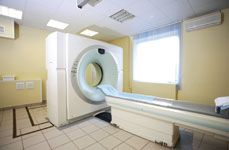Multiparametric MRI Effective, Affordable for Prostate Cancer Detection
Multiparametric MRI following a suggestive PSA test or digital rectal exam resulted in a 73% reduction in the need for biopsy.

Multiparametric MRI (MP-MRI) following a suggestive PSA test or digital rectal exam (DRE) resulted in a 73% reduction in the need for biopsy, as reported at the 2015 American Urological Association annual meeting.
The estimated cost per 100 men was $90,400 for transrectal ultrasound (TRUS)-guided biopsy versus $87,700 for MP-MRI. However, MP-MRI identified fewer prostate cancers compared with upfront TRUSguided biopsy. For every 100 men evaluated, MP-MRI led to 73 fewer biopsies and identified 16 prostate cancers. TRUS-guided biopsy, by definition, required biopsy of all 100 men and led to the diagnosis of 20.4 prostate cancers. Assuming a background cancer prevalence of 24%, reliance on MP-MRI would have missed twice as many cancers.
“Multiparametric MRI substantially reduced the number of biopsies and was cost equivalent to the TRUS biopsy arm for the base case,” said lead author Ahmed Haddad, MD, a fellow at the University of Texas Southwestern Medical Center in Dallas. “Multiparametric MRI missed a small number of cancers as compared with TRUS biopsy, and further studies are needed to determine the clinical significance of the missed cancers.”
More than 1 million TRUS-guided biopsies are performed annually in the United States in follow-up to an abnormal PSA test or DRE. TRUS-biopsies are associated with discomfort and carry a risk of potentially serious complications, such as sepsis.
Improvements in MRI technology, such as the development of multiparametric algorithms, have improved the imaging modality’s ability to detect prostate cancer. However, whether the decision to biopsy could rest on MP-MRI results remains unclear.
Using a commercial software package, Haddad and colleagues developed a decision-tree model to compare the cost of two different clinical strategies for men with suspected prostate cancer and a prior negative biopsy: MP-MRI (biopsy performed only in the case of abnormal images) versus TRUS-guided biopsy in all cases.
The outcomes of interest included cost, number of biopsies, and cancers detected. Costs were based on Medicare reimbursement rates and incorporated costs associated with sepsis and minor complications.
The cost of a single TRUS-guided biopsy averaged $904 and included physician reimbursement, pathology cost, loss of 1 day of work, and the cost of complications. Cost assumptions for the MRI consisted of MRI (professional and technician costs), cost of a TRUS-guided biopsy, and loss of one half-day of work, resulting in a total cost for MRI plus TRUS-guided biopsy of $1570.
Other assumptions of the model included an 85% sensitivity of a 14-core biopsy, 90% sensitivity of MRI followed by TRUS-guided biopsy, 74% sensitivity of MP-MRI, and 88% specificity of MP-MRI.
A baseline model with 24% prostate cancer incidence showed that TRUS-guided biopsy as the initial strategy led to biopsies in all 100 cases and a cancer miss rate of 3.6 (20.4 versus a baseline of 24). The MRI strategy resulted in 26.9 biopsies per 100 cases and eight missed cancers (16 detected versus 24).
If the baseline prostate cancer rate were lowered to 10%, the RP-MRI arm led to biopsies in 18.2 cases, avoidance of 81.8 biopsies (versus initial TRUS-guided biopsy), and detection of 6.7 (3.3 missed). Initial TRUS-guided biopsy detected 8.5 cancers and missed 1.5. Total cost for 100 cases was $90,400 for TRUS-guided biopsy and $79,400 for MP-MRI.
Increasing the baseline cancer rate to 40% led to 36.8 biopsies per 100 cases in the RP-MRI arm, avoidance of 63.2 biopsies versus initial TRUS-guided biopsy, detection of 26.6 cancers, and 13.4 missed cancers (versus 6 missed cancers with upfront TRUS-guided biopsy). Total cost of MP-MRI increased to $97,100 for 100 cases.
Haddad AQ, Costa D, Pedrosa I, et al. Cost effectiveness of multiparametric magnetic resonance imaging for detection of prostate cancer. Presented at: 2015 AUA Annual Meeting; 2015 15-19; New Orleans, LA. Abstract MP1711.
<<<

Survivorship Care Promotes Evidence-Based Approaches for Quality of Life and Beyond
March 21st 2025Frank J. Penedo, PhD, explains the challenges of survivorship care for patients with cancer and how he implements programs to support patients’ emotional, physical, and practical needs.
Read More